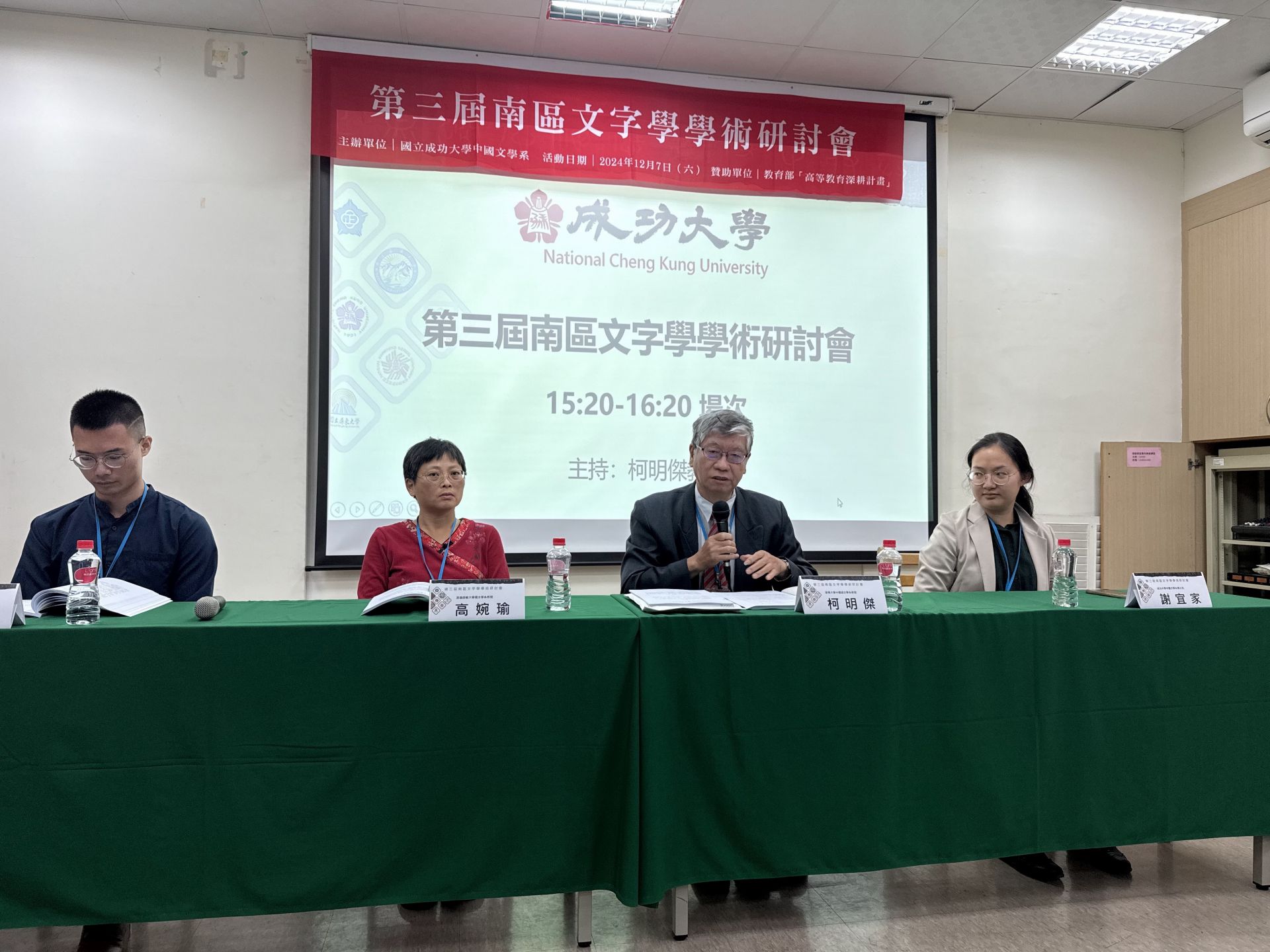SDG4
Century Voyage: The Convergence of Artificial Intelligence Technology and Regulatory Coupling Seminar on November 30th.
The vigorous development of technology has led humanity into the era of artificial intelligence, and the continuous evolution of AI technology and the development of regulatory frameworks have become a focal point of societal concern. To facilitate dialogue and in-depth exploration of this important issue between academia and industry, National Cheng Kung University's Interdisciplinary Integration Project in the Humanities and Social Sciences, in the year 112 (2023), held the seminar 'Century Voyage: The Convergence of Artificial Intelligence Technology and Regulatory Coupling' on November 30th at the Zenda Suites. The seminar invited professors and experts from various fields, including electrical engineering, business management, politics, and law, to engage in a collective discussion.
The event featured four thematic sessions: 'Legal Issues of Reward-Punishment Learning AI and Derived Biases,' 'Generative Artificial Intelligence and Case Sharing,' 'AI and Global Governance - The Game of Law, Politics, and Technology,' and a roundtable forum on 'AI Legislation and Dialogue on the Convergence of Algorithmic Automated Decision-Making.' Experts from different fields shared their insights and engaged in discussions on research issues related to AI in the areas of law, regulations, and automated decision-making.
The first session, 'Legal Issues of Reward-Punishment Learning AI and Derived Biases,' was chaired by Professor Wen-Yu Su from the Department of Computer Science and Information Engineering at NCKU. Yi-Ling Wen Executive Director of the AI Technology Foundation, delivered a presentation, and Associate Professor Guo-Yi Chen from the Department of Computer Science and Information Engineering at National Formosa University and Assistant Professor Shao-Man Lee from the Institute of Intelligent Computation at NCKU discussed the current practical situation and future legal development in Taiwan. This session focused on machine learning algorithms, particularly on the transparency, interpretability, discrimination, bias, privacy issues, and legal responsibilities associated with 'reward-punishment learning AI.'
The second session, 'Generative Artificial Intelligence and Case Sharing,' was moderated by Professor Hsin-Hui Chou,Chair of the Department of Business Management at NCKU. Senior Manager Yan-Jie Lee from Far EasTone Telecommunications and Data Scientist Wei-Yuan Chang from ALPHA Camp participated in the discussion. The content focused on the practical applications of generative AI in generating images, text, music, game design, and medical images, as well as ethical and legal issues such as the generation of false information, intellectual property rights, and potential misuse risks.
The third session, 'AI and Global Governance - The Game of Law, Politics, and Technology,' was hosted by Assistant Professor Hsin-Hsuan Lin from the Department of Political Science at NCKU. Research Fellow Zong-Han Wu from the Institute for National Defense and Security Research, and Assistant Research Fellow Hsuan-Yu Lin from the Institute of Political Science at Academia Sinica, delivered presentations. Professor Hong-Min Yao, Vice Dean and Director of the Institute of International Affairs at National Defense University, participated in the discussion. This session focused on the innovation of AI technology and its potential impact on legal and political changes among nations. It explored how countries can negotiate and respond to concerns about privacy and security through corresponding legal and policy measures.
The roundtable forum, 'AI Legislation and Dialogue on the Convergence of Algorithmic Automated Decision-Making,' brought together experts to discuss the challenges of formulating laws to address the use of AI and ensuring fairness, transparency, and accountability in automated decision-making. The organizers hope that this seminar effectively promotes the integration of academia and industry in the field of artificial intelligence technology and regulations."
The event featured four thematic sessions: 'Legal Issues of Reward-Punishment Learning AI and Derived Biases,' 'Generative Artificial Intelligence and Case Sharing,' 'AI and Global Governance - The Game of Law, Politics, and Technology,' and a roundtable forum on 'AI Legislation and Dialogue on the Convergence of Algorithmic Automated Decision-Making.' Experts from different fields shared their insights and engaged in discussions on research issues related to AI in the areas of law, regulations, and automated decision-making.
The first session, 'Legal Issues of Reward-Punishment Learning AI and Derived Biases,' was chaired by Professor Wen-Yu Su from the Department of Computer Science and Information Engineering at NCKU. Yi-Ling Wen Executive Director of the AI Technology Foundation, delivered a presentation, and Associate Professor Guo-Yi Chen from the Department of Computer Science and Information Engineering at National Formosa University and Assistant Professor Shao-Man Lee from the Institute of Intelligent Computation at NCKU discussed the current practical situation and future legal development in Taiwan. This session focused on machine learning algorithms, particularly on the transparency, interpretability, discrimination, bias, privacy issues, and legal responsibilities associated with 'reward-punishment learning AI.'
The second session, 'Generative Artificial Intelligence and Case Sharing,' was moderated by Professor Hsin-Hui Chou,Chair of the Department of Business Management at NCKU. Senior Manager Yan-Jie Lee from Far EasTone Telecommunications and Data Scientist Wei-Yuan Chang from ALPHA Camp participated in the discussion. The content focused on the practical applications of generative AI in generating images, text, music, game design, and medical images, as well as ethical and legal issues such as the generation of false information, intellectual property rights, and potential misuse risks.
The third session, 'AI and Global Governance - The Game of Law, Politics, and Technology,' was hosted by Assistant Professor Hsin-Hsuan Lin from the Department of Political Science at NCKU. Research Fellow Zong-Han Wu from the Institute for National Defense and Security Research, and Assistant Research Fellow Hsuan-Yu Lin from the Institute of Political Science at Academia Sinica, delivered presentations. Professor Hong-Min Yao, Vice Dean and Director of the Institute of International Affairs at National Defense University, participated in the discussion. This session focused on the innovation of AI technology and its potential impact on legal and political changes among nations. It explored how countries can negotiate and respond to concerns about privacy and security through corresponding legal and policy measures.
The roundtable forum, 'AI Legislation and Dialogue on the Convergence of Algorithmic Automated Decision-Making,' brought together experts to discuss the challenges of formulating laws to address the use of AI and ensuring fairness, transparency, and accountability in automated decision-making. The organizers hope that this seminar effectively promotes the integration of academia and industry in the field of artificial intelligence technology and regulations."
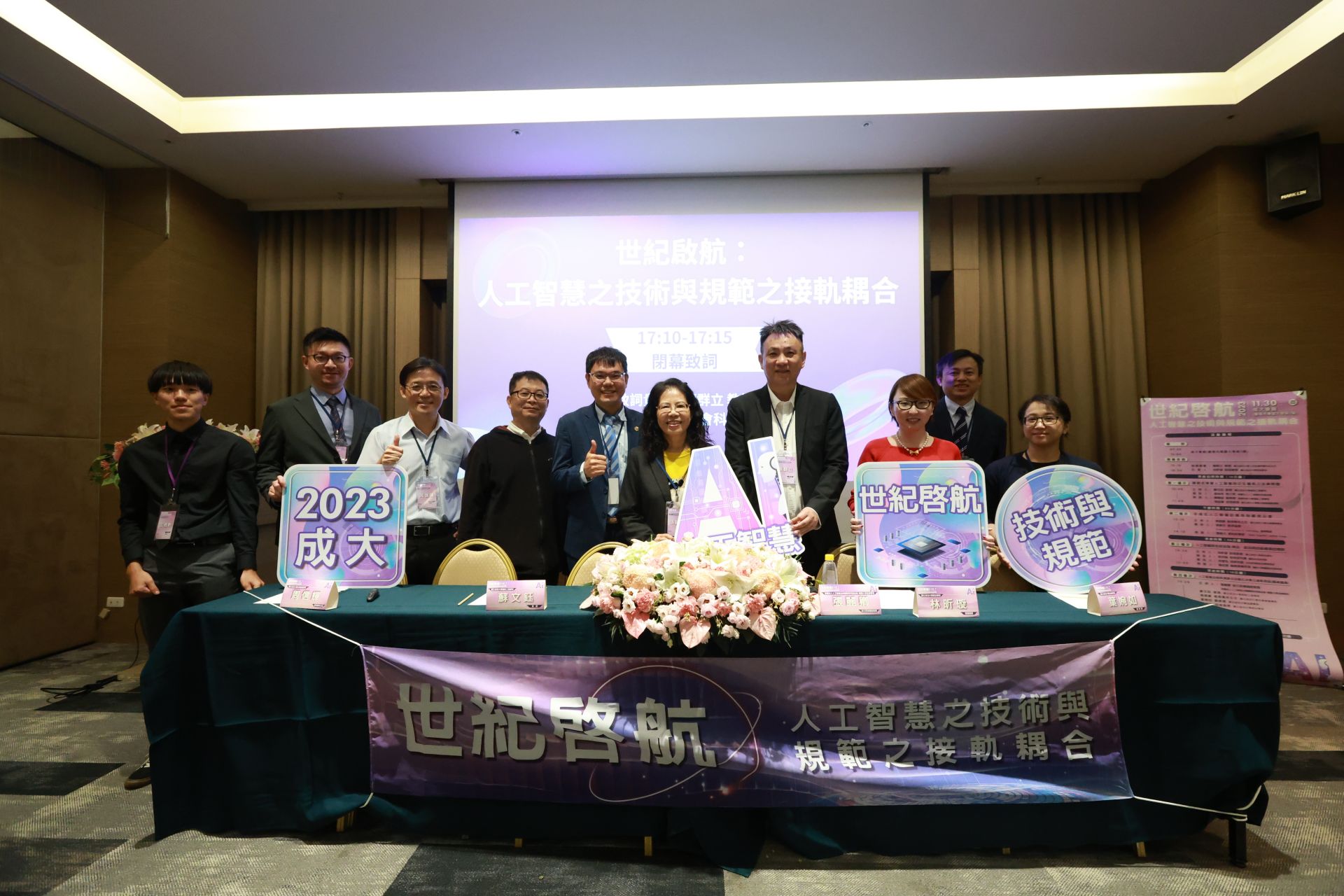
Group photo of participating experts and scholars.
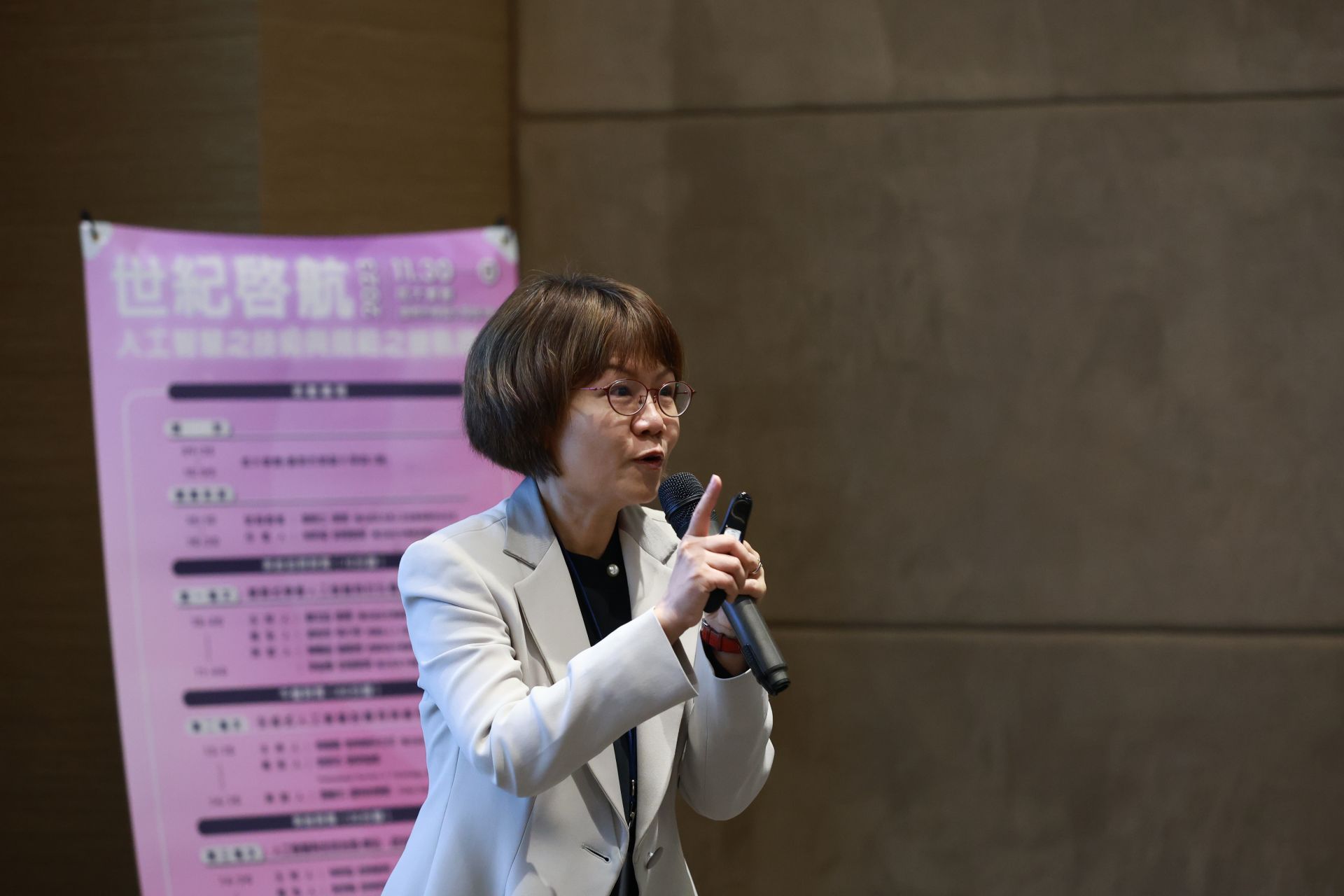
The Chief Executive Officer, Yi-Ling Wen, of the Foundation for Artificial Intelligence Technology is reporting on "Legal Issues Regarding Reinforcement Learning AI and Derived Biases."
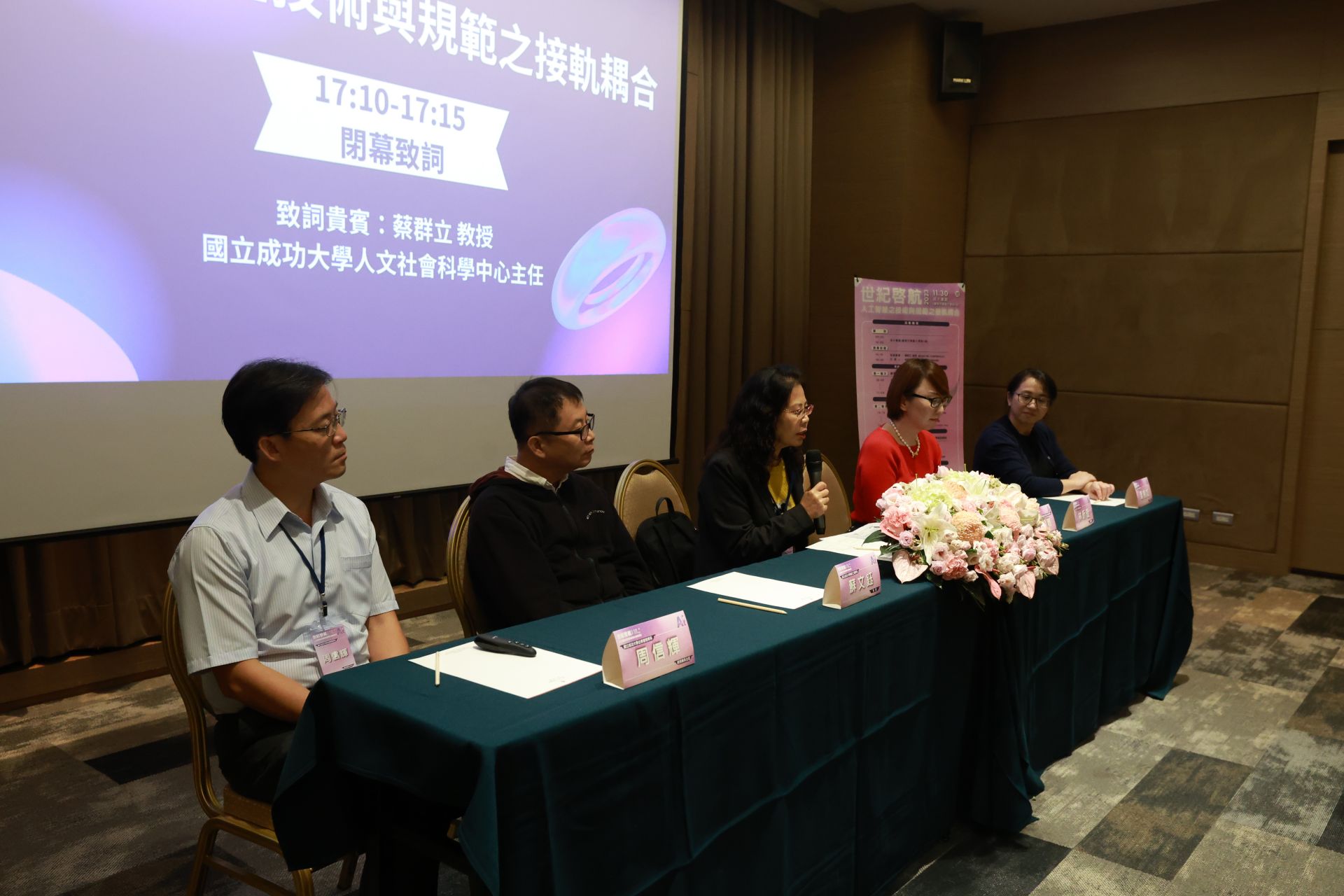
"Roundtable Forum on the Alignment of AI Legislation and Algorithmic Automated Decision-Making Dialogue," where participating experts collectively explore the formulation of laws to address challenges associated with the use of AI.
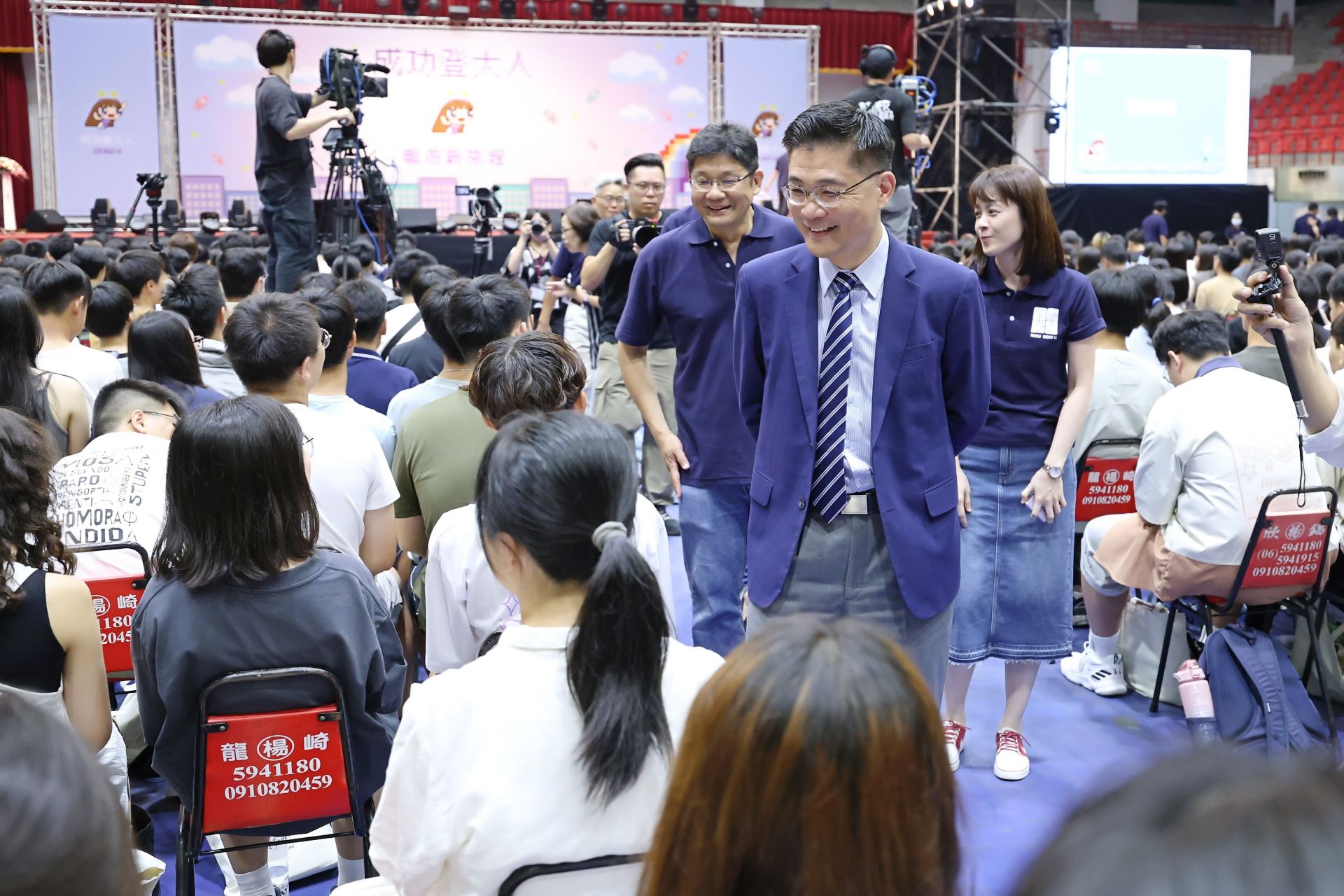
SDG4NCKU Freshman Camp: President Shen Welcomes Freshmen to the Unity and Prosperity of NCKU
View more
SDG4Learn Gratitude, Enjoy Blessings: NCKU Library's Themed Book Exhibition Invites You to Unlock the Magic of Gratitude
View more